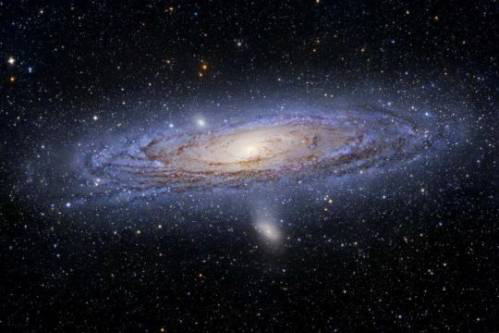Worries about Russian rocket reliability will delay the launch of US and French satellites and push back crew rotation for the International Space Station (ISS) to November, Interfax reported Tuesday, citing Russian space agency officials.
The next launch of a Russian Soyuz-U rocket has been rescheduled to October 14, to lift an unmanned space vehicle carrying supplies to the International Space Station (ISS), DPA reported.
Only if that mission is successful will Russia's national space agency Roskosmos allow further Soyuz shots to place US and French satellites into orbit, or transport astronauts to the ISS, the report said.
A September launch of six satellites for the US communications Globalstar has been rescheduled to December, and a December launch of a French military satellite will be delayed as well, according to the report.
Although other rockets can launch satellites, Russian Soyuz rockets are the only means of transporting astronauts to the ISS.
Successful unmanned Soyuz missions in October and early November would allow Roskosmos to give the go-ahead for three astronauts to fly to the ISS as relief crew in late November, officials said.
NASA officials have predicted Russian failure to deliver new crew to the ISS by December will force the abandonment of the ISS by early 2012. Russian space agency officials have called the abandonment of the ISS "an impossibility."
Russia's national space programme suffered a dramatic setback on August 24 when a Soyuz rocket carrying supplies to the ISS veered off course and crashed into a remote forest in the Altai region of Central Asia.
Roskosmos investigators have linked the failure to an improper separation between the Soyuz's third stage and the transport module, probably caused by a misfiring of the stage's RD-0110 engine.
The Soyuz is Russia's mainstay cargo rocket and up until the August accident had been one of the world's most reliable space vehicles. Checks of Russia's entire Soyuz rocket fleet, and particularly RD-0110 engines installed in most of them, are in progress.
Technical problems uncovered can take months to fix as malfunctioning rocket parts sometimes require shipping back to Russia from launch pads as far away as France's Guiana Space Centre in South America.
Russia rocket worries to delay US, EU satellite launches
Worries about Russian rocket reliability will delay the launch of US and French satellites and push back crew rotation for the International Space Station (ISS) to November, Interfax reported Tuesday, citing Russian space agency officials.






